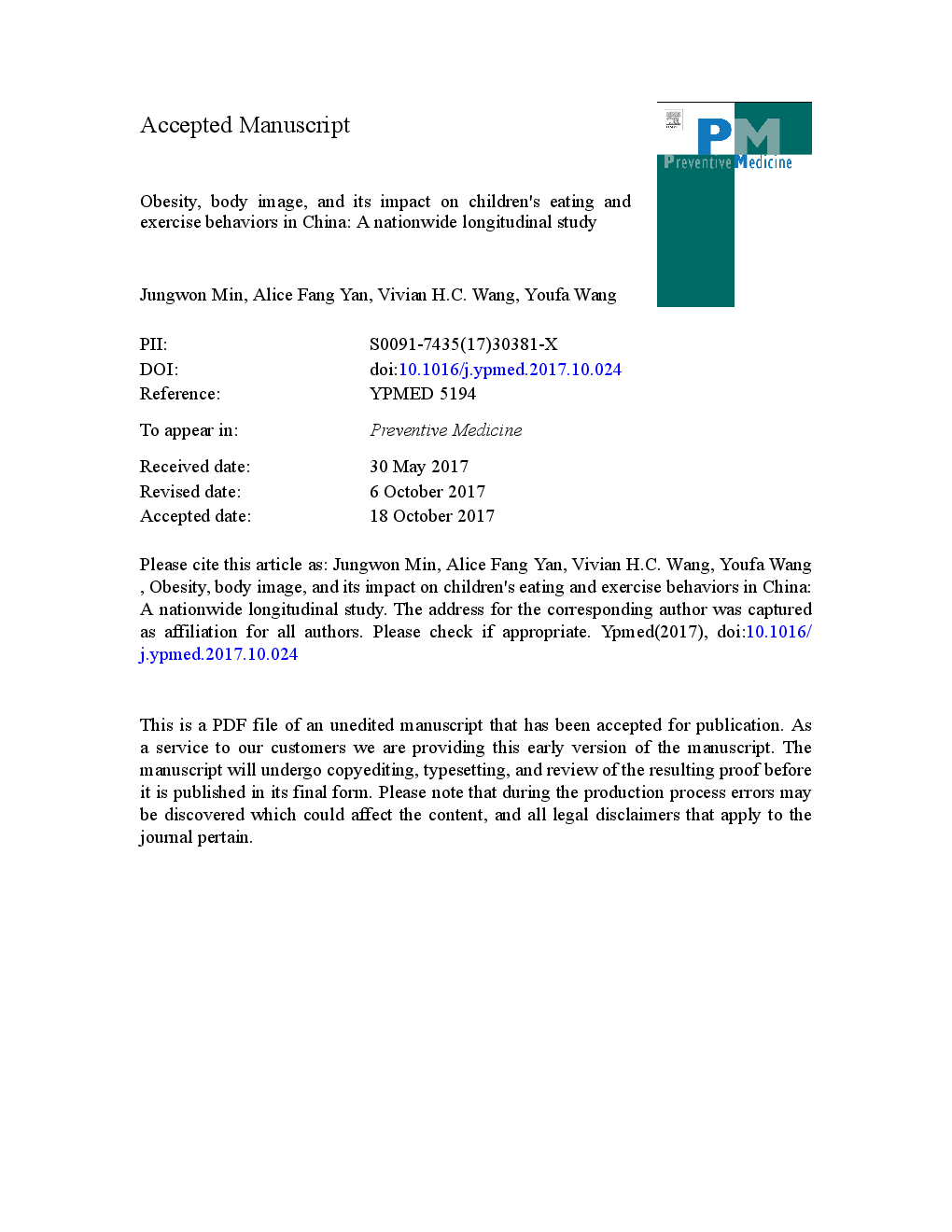ترجمه فارسی عنوان مقاله
چاقی، تصویر بدن و تاثیر آن در رفتارهای تغذیه و تمرینات کودکان در چین: یک مطالعه طولی در سراسر کشور
عنوان انگلیسی
Obesity, body image, and its impact on children's eating and exercise behaviors in China: A nationwide longitudinal study
| کد مقاله | سال انتشار | تعداد صفحات مقاله انگلیسی |
|---|---|---|
| 155758 | 2018 | 25 صفحه PDF |
منبع

Publisher : Elsevier - Science Direct (الزویر - ساینس دایرکت)
Journal : Preventive Medicine, Volume 106, January 2018, Pages 101-106
ترجمه کلمات کلیدی
تصویر بدن، کودک، چاقی، رژیم غذایی، فعالیت بدنی، چین،
کلمات کلیدی انگلیسی
Body image; Child; Obesity; Diet; Physical activity; China;

